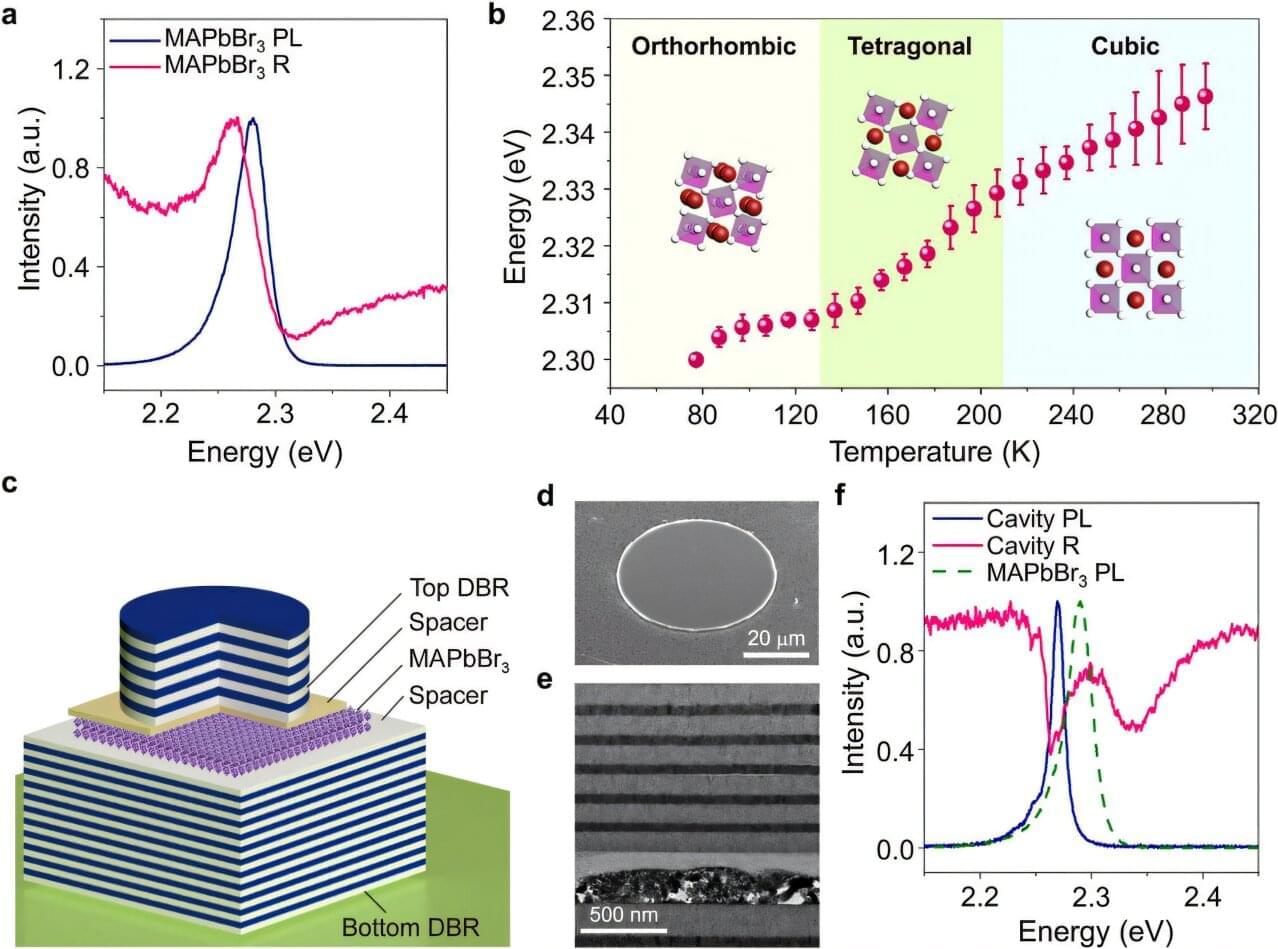A research team has successfully fine-tuned the Rabi oscillation of polaritons, quantum composite particles, by leveraging changes in electrical properties induced by crystal structure transformation. Published in Advanced Science, this study demonstrates that the properties of quantum particles can be controlled without the need for complex external devices, which is expected to greatly enhance the feasibility of practical quantum technology. The team was led by Professor Chang-Hee Cho from the Department of Physics and Chemistry at DGIST.
Quantum technology enables much faster and more precise information processing than conventional electronic devices and is gaining attention as a key driver of future industries, including quantum computing, communications, and sensors. At the core of this technology lies the ability to accurately generate and control quantum states. In particular, recent research has been actively exploring light-based quantum devices, with polaritons at the center of this field.
Polaritons are composite quasiparticles formed through the hybridization of photons and excitons—bound states arising from the motion of electrons. These quasiparticles travel at the speed of light while retaining the ability to interact with other particles, much like electrons.
